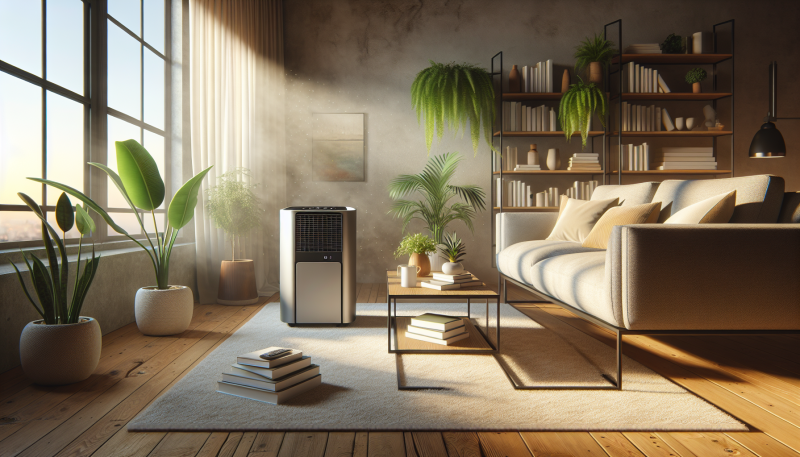How to Choose the Right Dehumidifier for Your Home
When it comes to maintaining a comfortable and healthy living environment, choosing the right dehumidifier for your home is essential. Excess humidity can lead to a host of problems, including mold growth, musty odors, and damage to your property. At Kraus Restoration, NJ’s leaders in water damage restoration, we understand the importance of controlling moisture levels to prevent further issues, especially after experiencing water damage or flooding. In this guide, we will explore key factors to consider when selecting a dehumidifier, ensuring you make an informed decision that suits your specific needs. From understanding the capacity and features of different models to recognizing the signs that indicate you need one, we aim to equip homeowners and property managers in Central and Northern New Jersey with the knowledge necessary to protect their homes. With our commitment to 24/7 emergency services and a team of IICRC certified experts, Kraus Restoration is here to support you in your journey toward a safer, drier home.
Key Factors to Consider When Selecting a Dehumidifier
When selecting a dehumidifier for your home, several key factors come into play to ensure you choose the right model for your specific needs. Understanding these factors can help you make an informed decision that enhances your indoor air quality and protects your living space from the damaging effects of excess moisture.
First and foremost, consider the size of the area you need to dehumidify. Dehumidifiers come in various capacities, typically measured in pints of moisture removed per day. For instance, a small dehumidifier may be sufficient for a bathroom or laundry room, while larger units are necessary for basements or extensive living areas. According to the Environmental Protection Agency (EPA), a dehumidifier should be able to remove approximately 30 to 50 pints of moisture per day for spaces that are around 1,500 square feet. For larger areas, you may need a unit that can handle 70 pints or more.
Next, evaluate the humidity levels in your home. If you live in a particularly humid climate or have specific moisture issues, such as a damp basement, you may require a more powerful dehumidifier. The ideal indoor humidity level is between 30% and 50%. You can use a hygrometer to measure the humidity in your home and determine the appropriate capacity for your dehumidifier.
Another important factor is the type of dehumidifier. There are two main types: refrigerant (or compressor) dehumidifiers and desiccant dehumidifiers. Refrigerant dehumidifiers are more common and work by cooling the air to condense moisture. They are generally more effective in warmer environments. Desiccant dehumidifiers, on the other hand, use a moisture-absorbing material and are better suited for cooler temperatures. Depending on your climate and the specific area you need to dehumidify, one type may be more effective than the other.
Energy efficiency is also a critical consideration. Look for dehumidifiers that are ENERGY STAR certified, as these models use less energy and can save you money on your electricity bills. The EPA states that ENERGY STAR certified dehumidifiers use about 15% less energy than non-certified models. Additionally, consider features such as automatic shut-off, continuous drainage options, and built-in humidistats, which can enhance the efficiency and convenience of your dehumidifier.
Noise level is another factor that can significantly impact your comfort. Some dehumidifiers can be quite noisy, which may be disruptive, especially in bedrooms or living areas. Check the decibel rating of the unit before purchasing, and consider models that are designed to operate quietly.
Maintenance requirements should also be taken into account. Dehumidifiers require regular cleaning and maintenance to function effectively. Look for models with easy-to-clean filters and accessible water tanks. Some units offer continuous drainage options, which can eliminate the need to empty the tank manually.
Finally, consider the price and warranty of the dehumidifier. Prices can vary widely based on capacity, features, and brand. It is essential to balance your budget with the features you need. Additionally, a good warranty can provide peace of mind, ensuring that you are covered in case of defects or issues.
In summary, when selecting a dehumidifier for your home, consider the size of the area, humidity levels, type of dehumidifier, energy efficiency, noise level, maintenance requirements, and price. By taking these factors into account, you can choose a dehumidifier that effectively manages moisture in your home, improving air quality and preventing damage from excess humidity.
For more information on how to protect your home from moisture issues, you can visit our water cleanup services or learn about our mold cleanup services. If you have any questions or need assistance, feel free to contact us.
For further reading on dehumidifiers and their benefits, consider checking out resources from the EPA or the American Society of Heating, Refrigerating and Air-Conditioning Engineers (ASHRAE).
In conclusion, selecting the right dehumidifier involves careful consideration of several factors that can affect its performance and your home’s air quality. By understanding these key elements, you can make a well-informed choice that meets your specific needs and enhances your living environment.
Comparing Different Types of Dehumidifiers for Home Use
When it comes to maintaining a comfortable and healthy living environment, controlling humidity levels is essential. High humidity can lead to a range of problems, including mold growth, musty odors, and damage to your home and belongings. To combat these issues, many homeowners turn to dehumidifiers. However, not all dehumidifiers are created equal, and understanding the different types available can help you make an informed decision.
There are several types of dehumidifiers, each designed to meet specific needs and conditions. The most common types include refrigerant dehumidifiers, desiccant dehumidifiers, and whole-house dehumidifiers.
Refrigerant dehumidifiers, also known as compressor dehumidifiers, are the most popular choice for residential use. They work by drawing in humid air, cooling it to condense moisture, and then reheating the air before releasing it back into the room. This type of dehumidifier is effective in moderate to high humidity levels and is typically more energy-efficient in warmer climates. They come in various sizes, making them suitable for different room sizes and humidity levels.
Desiccant dehumidifiers, on the other hand, use a different method to remove moisture from the air. They contain a desiccant material, such as silica gel, which absorbs moisture. These dehumidifiers are often quieter and can operate effectively at lower temperatures, making them ideal for basements or unheated spaces. However, they tend to be less energy-efficient than refrigerant models and may require more frequent maintenance.
Whole-house dehumidifiers are designed to work with your home’s HVAC system, providing a centralized solution for humidity control. These systems can effectively manage humidity levels throughout the entire house, making them a great option for larger homes or areas with persistent humidity issues. They are typically more expensive to install but can provide significant long-term benefits in terms of comfort and protection against moisture-related problems.
When choosing a dehumidifier, it is essential to consider factors such as the size of the area you need to dehumidify, the average humidity levels in your home, and your budget. Additionally, look for features such as automatic shut-off, built-in humidistats, and continuous drainage options, which can enhance the convenience and efficiency of your dehumidifier.
For those who are unsure about which type of dehumidifier is best for their specific needs, consulting with professionals can provide valuable insights. At Kraus Restoration, we offer a range of services related to moisture control and can help you assess your situation. Whether you are dealing with mold issues or simply want to improve your home’s air quality, our team is here to assist you. For more information about our services, visit our services page or contact us directly through our contact page.
In summary, understanding the different types of dehumidifiers available can help you choose the right one for your home. By considering your specific needs and the unique characteristics of your living space, you can select a dehumidifier that will effectively manage humidity levels and contribute to a healthier home environment.
In conclusion, selecting the right dehumidifier for your home is a crucial step in maintaining a comfortable and healthy living environment. By considering factors such as the size of the space, the humidity levels in your area, and the specific features that meet your needs, you can make an informed decision that will enhance your indoor air quality. Remember to evaluate the unit’s capacity, energy efficiency, and maintenance requirements to ensure it fits seamlessly into your lifestyle. With the right dehumidifier, you can effectively combat excess moisture, prevent mold growth, and create a more pleasant atmosphere in your home. Take the time to research and choose wisely, and you’ll enjoy the benefits of a drier, healthier living space for years to come.










